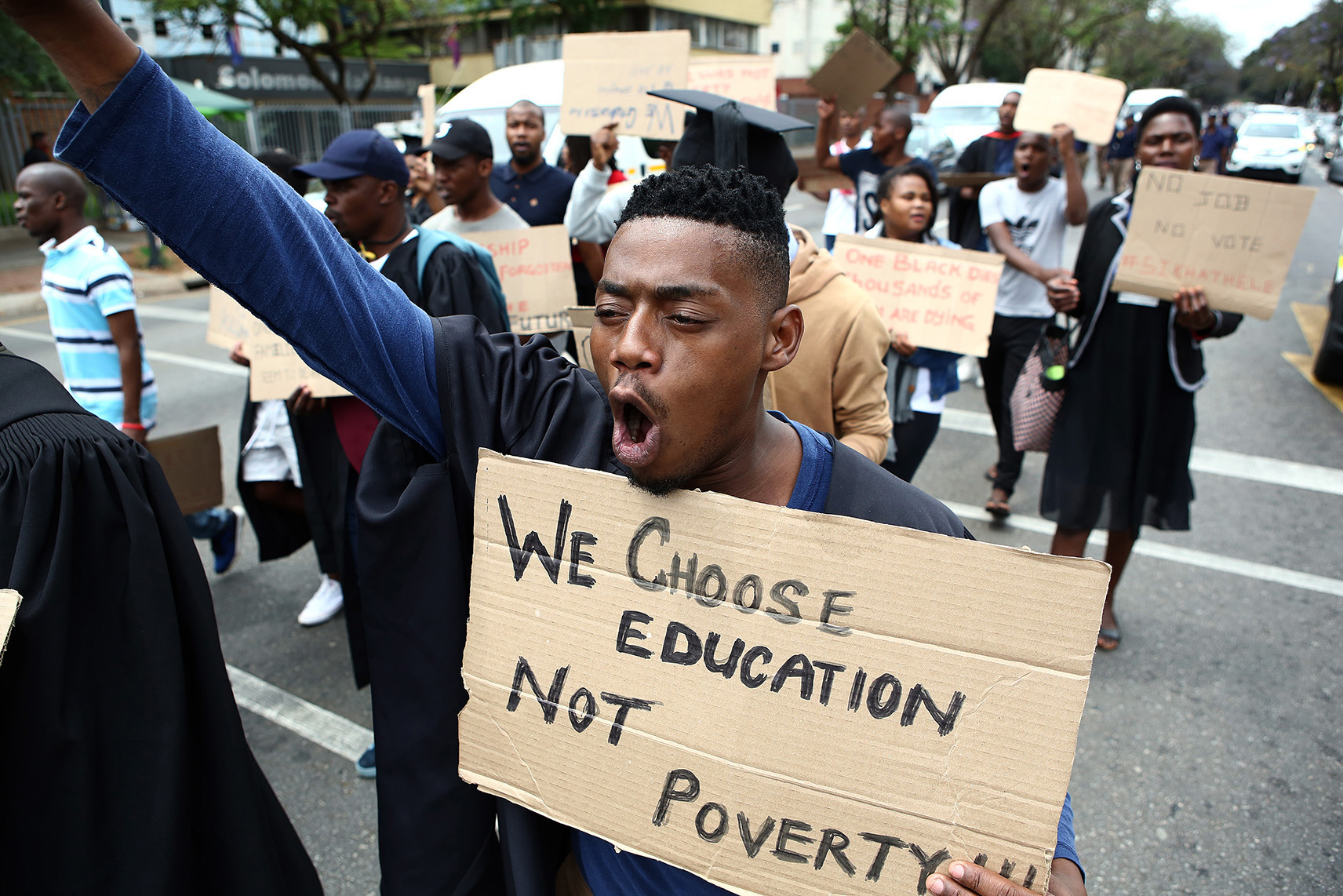While the latest unemployment statistics show a slight decrease in the number of jobless people in South Africa, with unemployment at 31.9% in the last quarter of 2024, the figure remains stubbornly high. Even more worrying is the fact that 44.6% of the youth population are jobless.
In light of this, the Budget tabled by Finance Minister Enoch Godongwana on Wednesday increased spending on job creation, including public employment programmes aimed at redressing unemployment.
The Budget allocated R8-billion to public employment programmes, including:
- R4-billion to the Basic Education Employment Initiative (BEEI) to hire teachers in schools;
- R1.1-billion to the Social Employment Fund, aimed at promoting work in local communities;
- R750-million to the Food Security and Livelihoods Programme for subsistence farmers;
- R650-million to the Cities Public Employment Programme for local community employment;
- R250-million to the National Youth Service Programme; and
- R250-million to the National Pathway Management Network to connect unemployed individuals to job opportunities.
Read more: Godongwana walks a perilous path as he attempts to appease coalition partners
Budget doesn’t serve the needs of young people
With a projected growth of 1.9%, a significant improvement from the 0.6% GDP growth in 2024, PwC’s economic outlook for 2025 anticipates that 115,000 jobs will be created this year. However, with an anticipated 340,000 new entrants to the labour force, the growth of the labour force will outpace projected job creation and, in turn, increase South Africa’s high unemployment rate.
This means the government needs to make a concerted effort to bring job creation in line with the projected growth of the labour market. However, some civil society organisations felt the Budget allocations fell short of doing this.
Youth Capital’s Clotilde Angelucci told Daily Maverick that public employment programmes could stimulate the economy, provide work experience for young people, and deliver services when funded well.
Angelucci said it was encouraging to see the BEEI back in the Budget.
She also welcomed allocations to the Social Employment Fund, but said that the Budget did not address young people’s needs.
“In the last 16 years, we have seen a decline in the market absorption rate of young people, and the economy has shed 700,000 jobs for young people. Even when the economy grows, jobs are not created for young people, so we can’t rely magically on economic growth — there needs to be an intention to do so, and only 10% of unemployed people actively looking for work are absorbed into the market each year,” said Angelucci.
She added that the government faced a dual crisis: a lack of jobs, which was exacerbated by the lack of differentiated approaches to tackle the issue.
Pointing to a 2024 evaluation report by the Department of Planning and Monitoring on the design and implementation of the government’s youth employment creation programmes, Angelucci said it confirmed that to effectively tackle the crisis, interventions can’t solely focus on skilling young people.
“They need to include the demand-side part of the equation and include metrics like private job creation, business development, foreign direct investment, exit pathways and, for example, partnerships.
“For these metrics to be included, the design of these programmes is key. However, because funding has been uncertain and renewed on a yearly basis, it’s impossible to achieve. The Budget includes investment in economic development and the construction multiplier, but there needs to be an intentional link to creating opportunities for young people in the sector,” she said.
Read more: What happens next for a contested Budget?
PES funding falls short
The Institute for Economic Justice’s (IEJ’s) Dalli Weyers welcomed the R8-billion allocation to public employment programmes over the medium term, adding that it showed improvement from previous years. However, the IEJ was unhappy that only R4.3-billion was allocated to the Presidential Employment Stimulus (PES), compared to the R12.6-billion allocated at its inception.
Launched in 2020 as part of the government’s response to disruptions in employment created by the Covid-19 pandemic, the PES has created more than 1.5 million work opportunities for young people since 2020.
Youth Capital’s Angelucci said the cuts to the PES had been consistent over the last few years, significantly reducing employment opportunities. While spending on the PES had increased slightly from R3.4-billion in 2024, it remained far below what was necessary to address the crisis.
Weyers said: “The slight improvements in spending on public employment programmes are welcomed, but the context of unemployment in South Africa means these efforts must be significantly and rapidly upscaled.
“It is unacceptable that public employment programmes make up less than 1% of consolidated government spending.” DM
Join Daily Maverick’s webinar: The Budget Finally Lands: What you need to know




